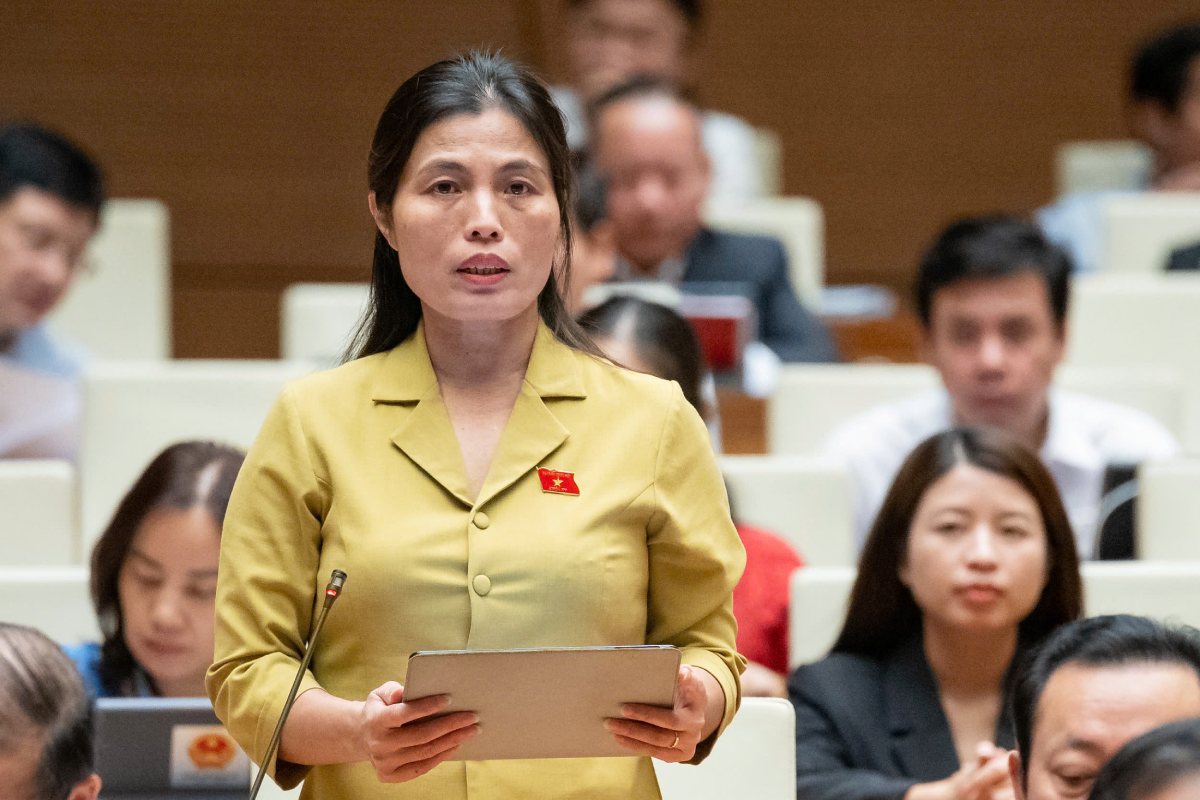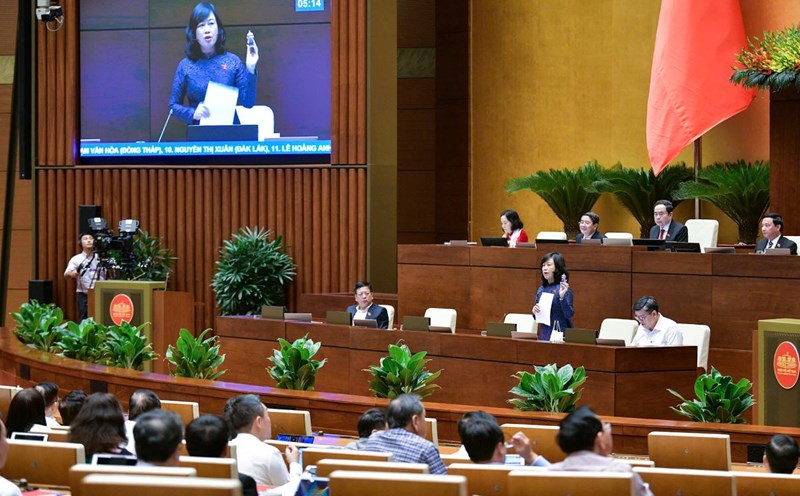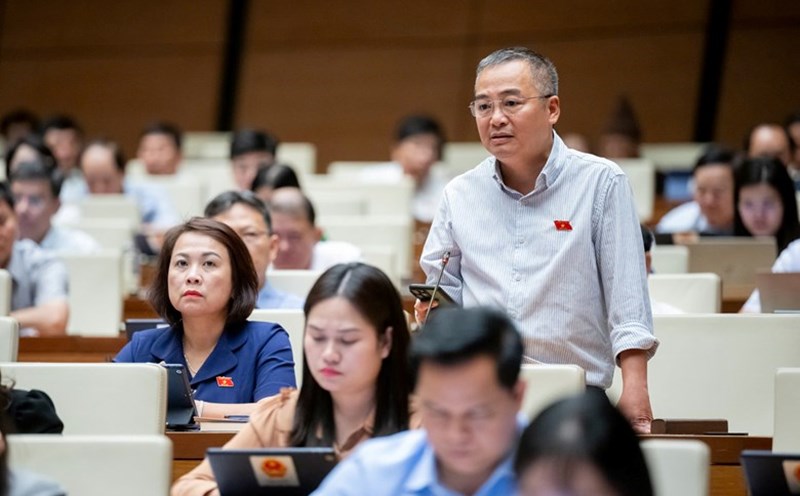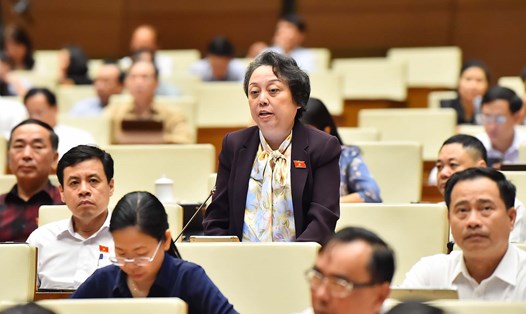On the morning of November 12, continuing the program of the 8th Session, the National Assembly continued the question and answer session of National Assembly deputies on the field of health and the third group of issues in the field of information and communication.
National Assembly Chairman Tran Thanh Man chaired the meeting.
Questioning, delegate Ho Thi Minh - National Assembly Delegation of Quang Tri Province - said that according to regulations, pharmacists must be present at pharmacies when they open, prescription drugs can only be sold with a doctor's prescription. However, currently, most pharmacies do not have pharmacists, and prescription drugs without a prescription are still sold widely.
Delegates asked the Ministry of Health to provide solutions to manage the situation of "buying and selling drugs without prescription".

Responding to this content, Minister of Health Dao Hong Lan said that the person responsible for the pharmaceutical expertise of a business establishment in general and of a retail establishment in particular is the person with the highest responsibility before the law for all professional activities of the establishment.
Legal documents on pharmaceuticals also have very strict regulations to ensure that those responsible for professional matters properly perform their functions and duties.
The Minister cited the 2016 Pharmacy Law as an example, which strictly prohibits the retail sale of prescription drugs without a prescription. Decree 117 also stipulates that the person in charge of professional responsibility who is not present at the prescribed facility can be subject to an administrative fine of up to VND5,000,000.
According to current law, the Department of Health of each locality is the agency responsible for receiving, assessing, granting, re-granting, and revoking licenses for pharmaceutical business eligibility for pharmaceutical business establishments that are retail drug stores.
In recent times, the Department of Health has strengthened its supervision of retail establishments. It can be affirmed that this activity is becoming increasingly stricter.
"I am also very interested in this content. A few days ago, I also wore a mask and covered my face to go to a pharmacy near my house to buy the prescription drug Seduxen. The saleswoman said that this drug must have a prescription to be sold," the minister said, adding that in practice, there are different people, but basically this form has been strengthened and managed.
The Ministry of Health has implemented regulations on the national electronic prescription system. This is a unified management system nationwide, helping medical facilities and pharmacies manage prescriptions and monitor drug sales according to transparent processes.
This system requires all pharmacies to update information each time they issue or sell prescription drugs and to work closely with medical facilities for inspection and monitoring.
If there is incorrect information, non-compliant establishments will be handled according to the provisions of the law on pharmaceuticals. The Ministry of Health, together with the Ministry of Public Security, in the process of implementing Project 06, also strengthens the connection of the nationwide pharmaceutical management system.
"We have regulations, but in practice, there are still violations here and there. When they are discovered, they will be strictly handled according to regulations," the minister emphasized.











